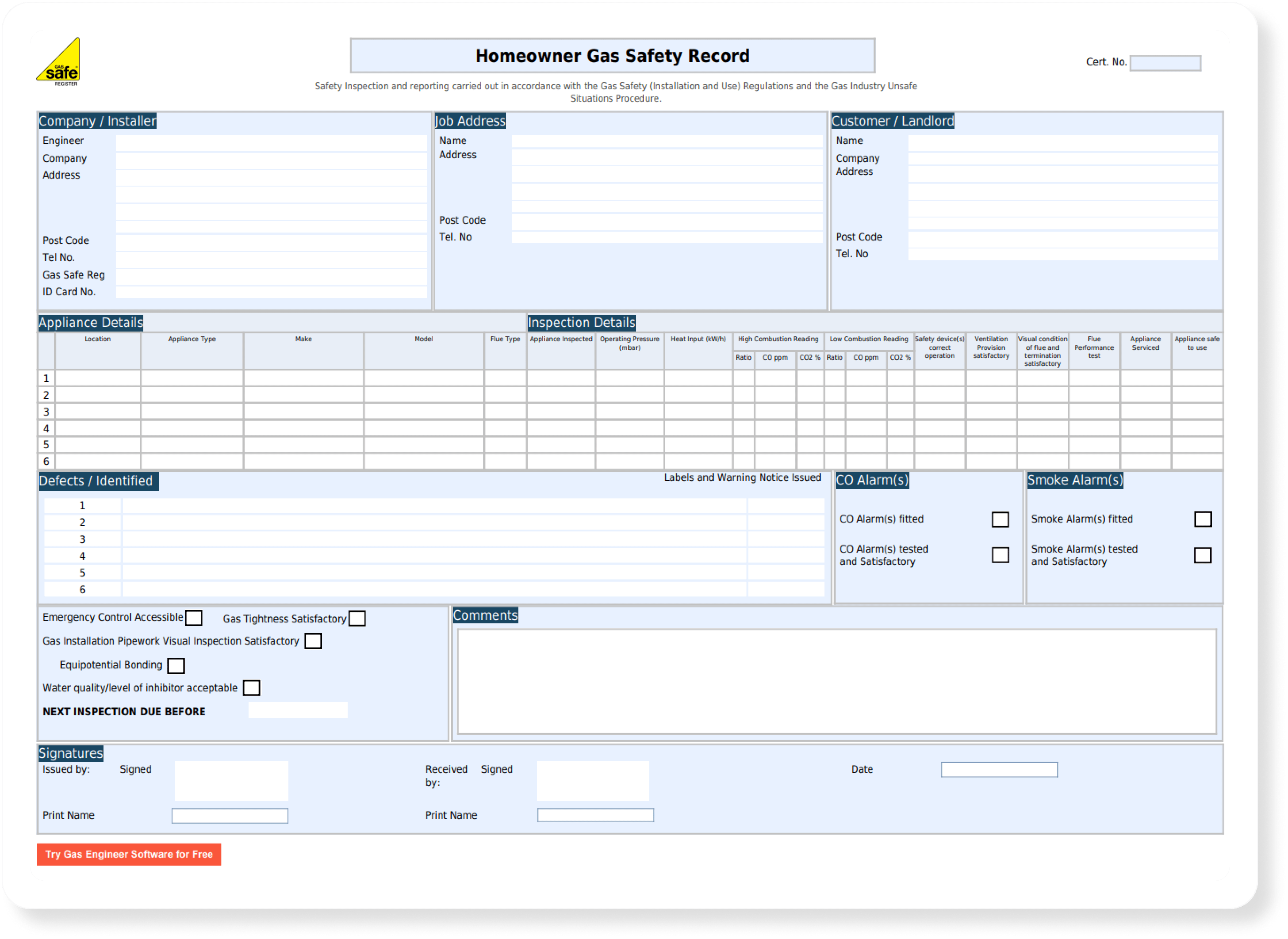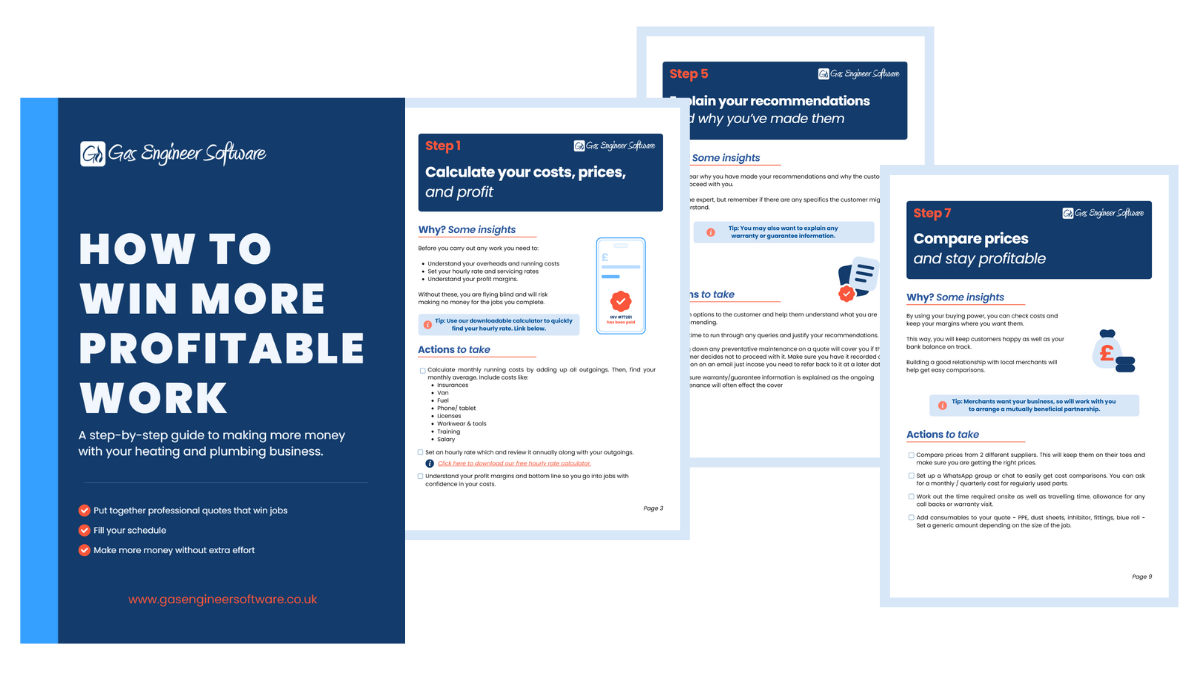18 Quick Tips To Handle Busy Winters With Your Heating Business
by Arran Saunders | Sep 19, 2025
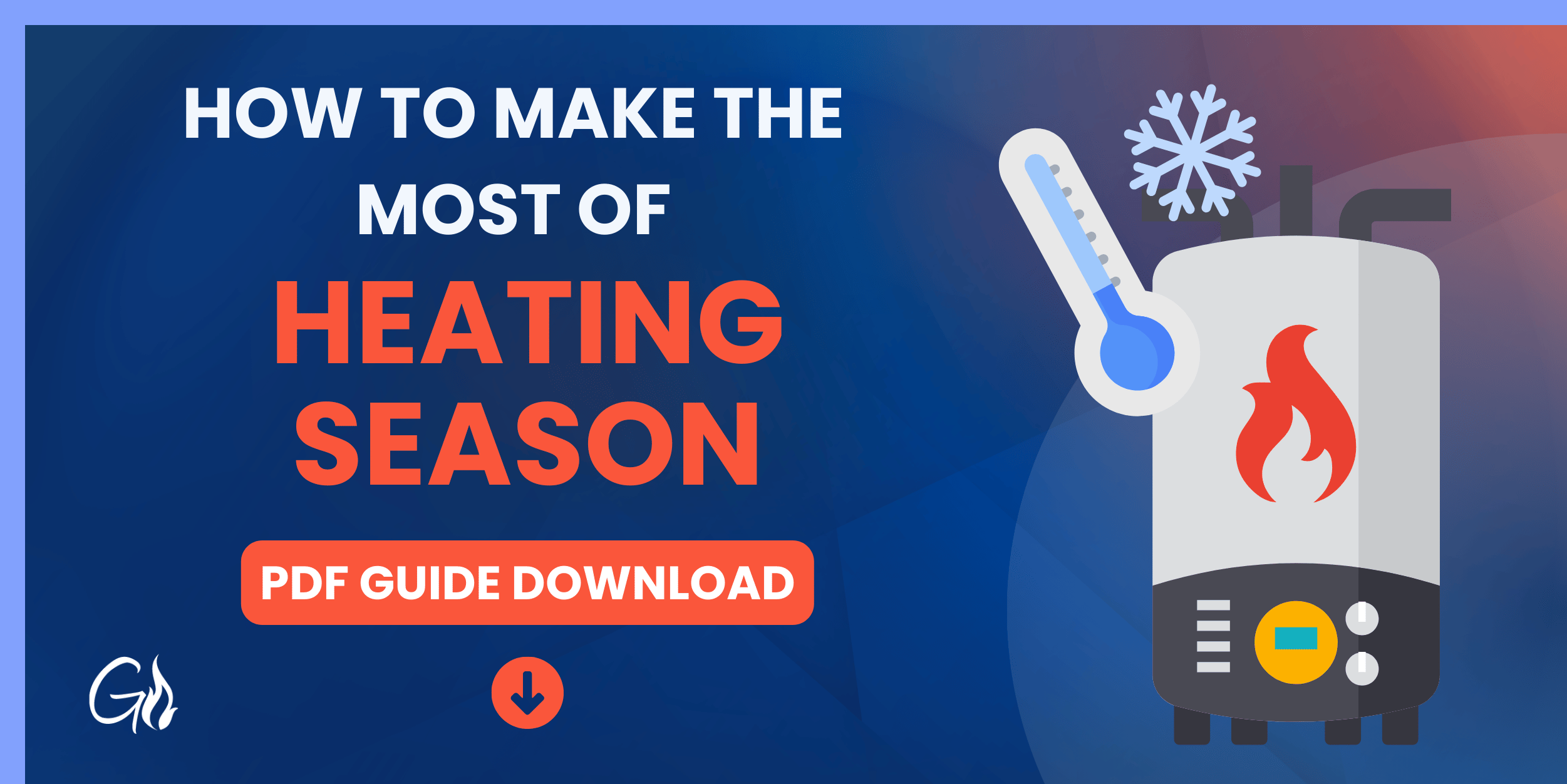
As a heating & plumbing business, winter is by far your busiest and most profitable season. But while all this extra work is great news for the bank account, it can make things a lot more stressful and difficult to manage.
Scheduling challenges, long working hours, last-minute phone calls from customers who’ve just turned on their radiators for the first time this year – you’ve heard it all before. Add some family time for Christmas onto that, and you’ve got a recipe for an incredibly busy few months.
In this article, we’ll go through 18 tips from real heating & plumbing business owners on how to make the most of the heating season.
How much busier is the heating season?
We analysed over 6000 heating & plumbing businesses and found that heating and plumbing businesses are up to 39% busier in the colder months.
Here’s a graph of the data:
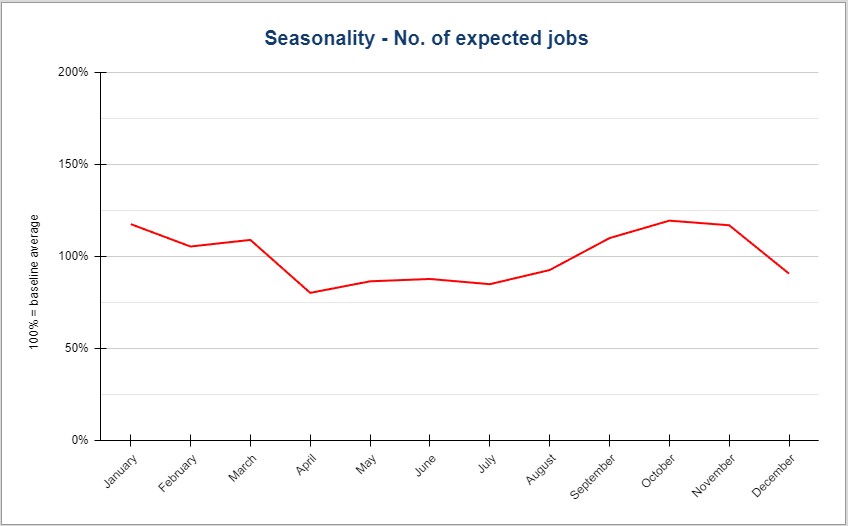
If you want to see how much busier your business gets, check out our free seasonality calculator.
Tips for handling busier months
Tip #1: Call your customer the day before to confirm the appointment
Communication is key in the trades. Sometimes, customers forget about an appointment or, even worse, call another company that could get the job done quicker. A great way to avoid turning up and finding out they’re not home is to give them a quick ring the day before to confirm the appointment.
In winter, when your schedules are so packed and customers are left waiting longer than usual, having a no-show is especially painful and wastes precious time.
This tip was submitted anonymously.
Tip #2: Avoid committing to large projects for a flexible schedule
If you have the schedule to accommodate them, breakdowns (specifically emergency callouts) are some of your most profitable jobs and greatly help your customers. The only problem is when you’ve got a fully booked-up schedule and end up working overtime to do them.
During the busy months, prioritising smaller jobs leaves you with a more flexible schedule. Larger jobs can mean you have to miss out on more urgent ones, which can then hurt the amount of repeat business you get in the long run.
This tip was submitted by Peter Blake from Pipedreams Heating and Plumbing Limited.
Tip #3: Make getting paid quick & easy
When things get busy, it’s crucial to make the administrative parts of your business as streamlined as possible. We’ve written in detail about the issue of late-paying customers in the trades, and one of the best ways to avoid it entirely is to offer a way to get paid on the spot.
Using open banking apps like Crezco (which can be integrated with Gas Engineer Software), you can provide customers with a QR code or link they can use to pay and avoid the annoying bank transfer process or having to write a cheque. This method also means much lower fees.
This tip was submitted by Richard from Marshall Gas Ltd.
Get more jobs done, without working longer hours.
Start your 7-day free trial now:
Tip #4: Schedule jobs efficiently
A great way to squeeze some extra time out of your day is to organise your diary so that all your jobs are close together. This will help minimise time spent driving and maximise how long you actually get paid for.
Before booking a job, see if you’re going to be in the area at a certain time. Or, if you work as part of a team, check where each engineer lives and what’s closest to them.
This tip was submitted anonymously.
Tip #5: Save the last slot of each day for emergency breakdowns
If you finish early, you can also use the time to finish up some paperwork.
This tip was submitted by Laura Eastham from Ignite Heating Services and Jason Finlay from JMF Heating and Plumbing Ltd.
Tip #6: Don’t be scared to say “no” to new customers
Repeat business is incredibly valuable and very profitable for any heating & plumbing business. If you’ve got a loyal customer base already, don’t be afraid to turn down a new customer, even if it’s just for the winter months.
New customers can take a disproportionately large amount of your time, meaning you won’t have time to help all of your current customers.
This tip was submitted by Laura Eastham from Ignite Heating Services.
Tip #7: Send out reminders a little earlier than usual
This tip was submitted by Laura Eastham from Ignite Heating Services.
Tip #8: Avoid doing work for insurance companies
This tip was submitted by Laura Eastham from Ignite Heating Services.
Tip #9: Keep your van well-stocked with spare parts
You never know when you need a specific spare part. Keep your van fully stocked with all the parts you can so you don’t need to rush to the merchants and return another day to finish the job.
This tip was submitted by Rob from Plumbing Heating Drainage Services.
Tip #10: Hire a virtual admin assistant
You only need to pay for a few hours a week to make a noticeable difference. What’s great about hiring a virtual assistant (rather than a dedicated full or part-time one) is that you only pay for the time you need, whether that’s 2, 3 or 4 hours a week – or more.
This tip was submitted by Robin Strong from Optimised Heating.
Tip #11: Keep a kettle in your van
Warming up frozen condensing pipes can be a real nuisance. Keeping a kettle in your van means you won’t have to bother your customer for theirs.
This tip was submitted anonymously.
Tip #12: Always show up with a smile
This tip was submitted by @rebel.gaming.steve on Instagram.
Tip #13: Prioritise your work and stick to a plan
A great way to minimise this mental load is to make a plan for the week ahead and keep a “if it’s not on the list it’s not getting done” mentality.
This tip was submitted by Emma Fisher on Facebook.
Tip #14: Set your prices for the customers that you want to work for
This tip was submitted by @jonesthegas on Instagram.
Tip #15: Reply to customer enquiries as quickly as possible
This tip was submitted by Christina Curtis on Facebook.
Bonus tips:
#16 Increase your prices
If your schedule is simply too busy to manage during the busy period, it could be a sign your prices are too low. Higher prices will naturally mean you win fewer quotes, but it’ll also mean you make more profit for your work.
So, what and how should you charge? We’ve written in-depth articles about pricing that talk about the best pricing strategies as well as the average prices for jobs broken down by region here in the UK. You can access these here:
#17: Set expectations with your customers
This first tip is all about communicating with your customers. Every business owner knows that happy customers mean a happy business, but customer satisfaction is closely related to their expectations.
Read more: Customer Relationship Management: How To Show You Care
Letting customers know that you might have a longer-than-usual turnaround time for emergency visits, or an update to your ETA can go a long way in terms of keeping your customers happy.
Generally, people are understanding of longer wait times or late arrivals so long as it’s communicated clearly.
#18: Leverage technology to your advantage
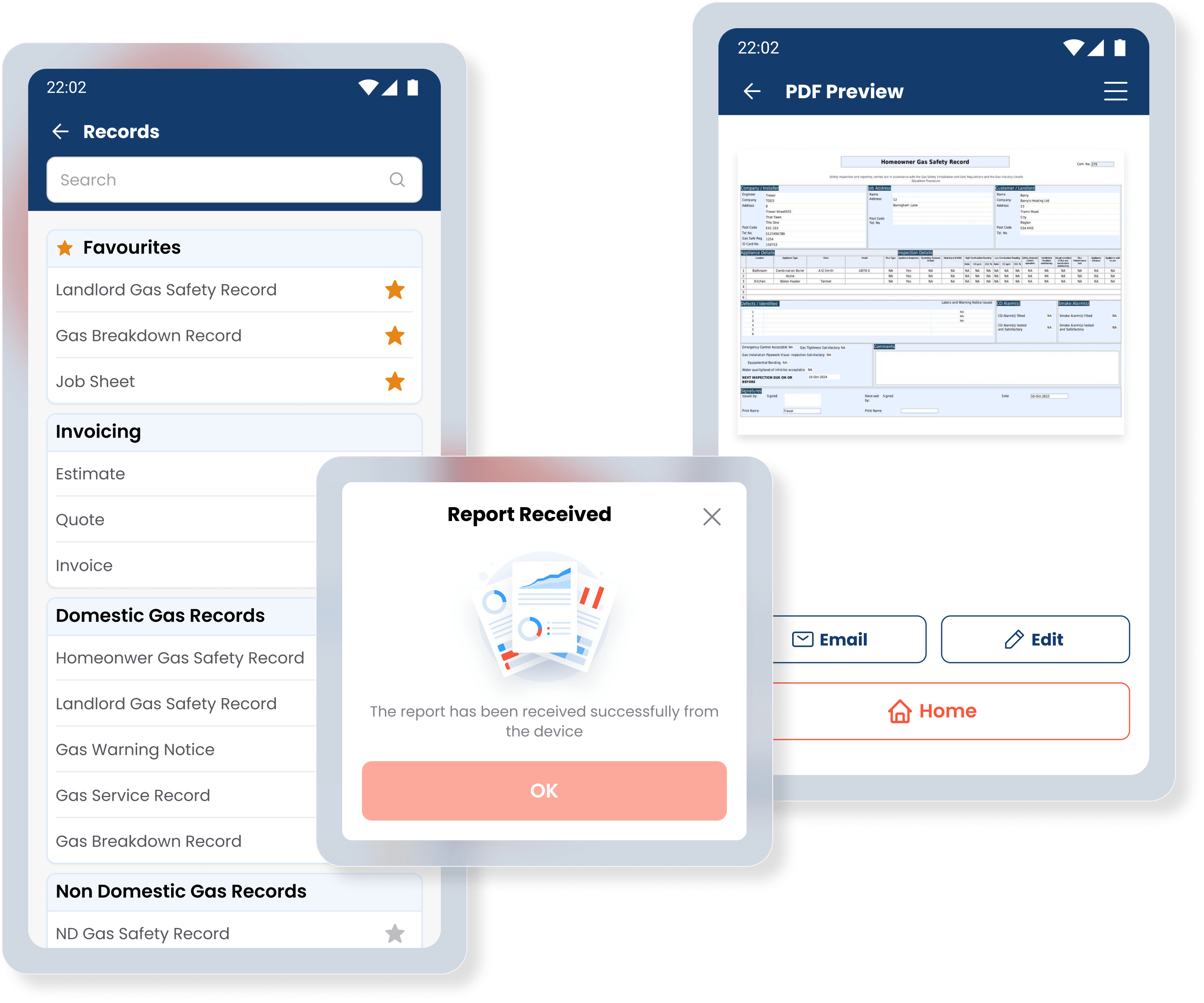
Job management platforms like Gas Engineer Software are a great way to cut down on admin and save a good chunk of your time.
For example, instad of having to fill out every detail on every certificate, software can auto-fill what you already know (think your company and personal details, appliances), scan serial no. barcodes, pull readings from your FGA, and much more. There are also line item templates for quotes, which can then be converted into invoices, automated reminders to track late payers, and lots more.
Get more jobs done—without working longer hours.
Start your 7-day free trial now:
Free Pricing Calculator
Add up all your costs & get an hourly rate
